A quilt requires quality, durable fabrics that are visually appealing. However, you might have questions about the thread count of quilters cotton. We scored sources to discover more about quilters cotton and its average thread count.
Quilters Cotton ranges between 60 to 75 threads per inch, up to 200 threads per inch. Average quilters cotton has a modest count, but higher-end quilters cotton is usually a maximum of 200 threads.
A higher thread count means a piece of fabric is tightly woven, lending to a softer material. However, higher thread count fabrics are challenging to quilt and more expensive than average quilters cotton.
Read on to learn more about quilters cotton, differences between this fabric and regular cotton, and other helpful info. Keep in mind a higher thread count for cotton fabric is not always suitable for creating a durable quilt.
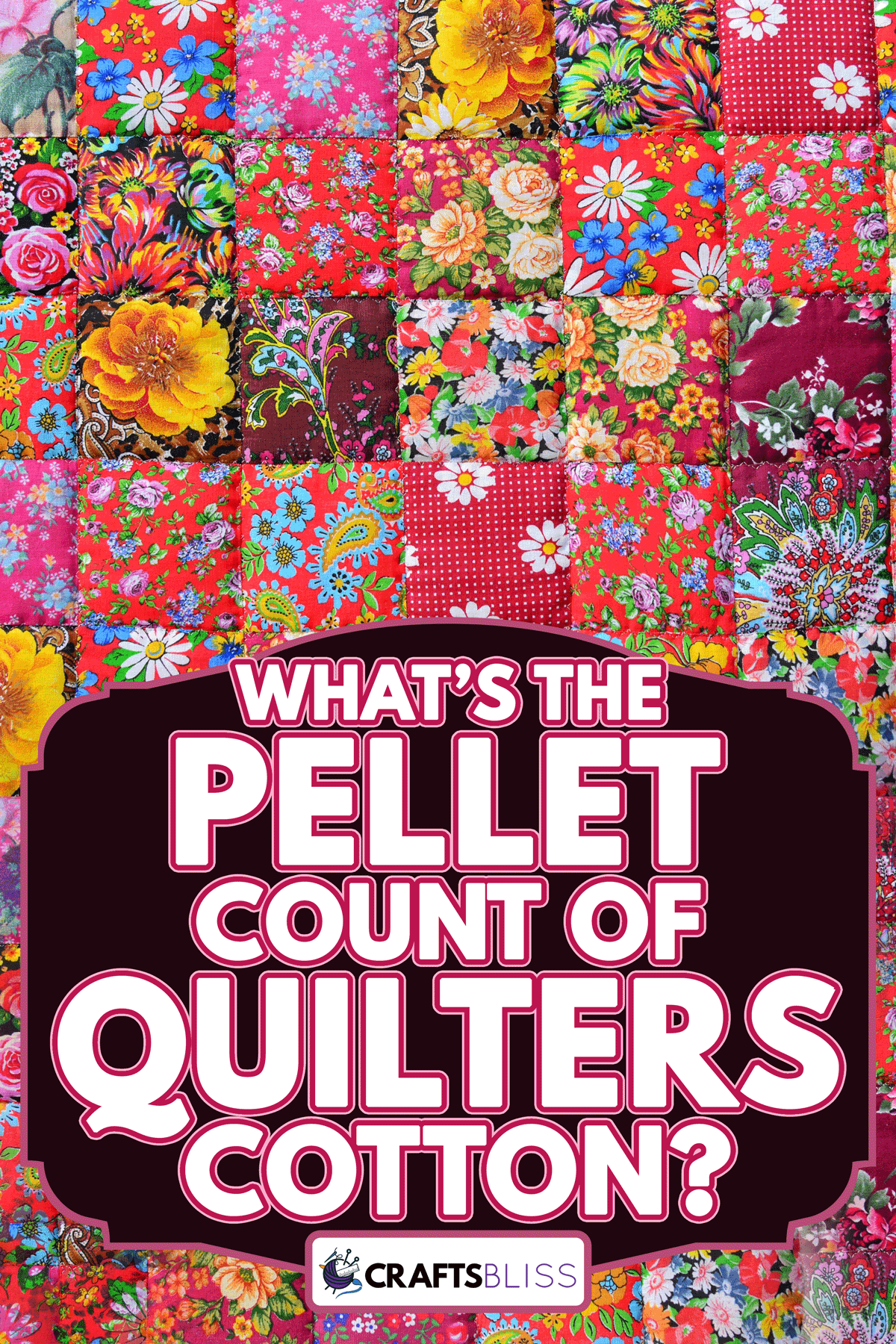
What's The Thread Count Of Quilters Cotton?
If you want to delve into quilting projects, you will likely work with quilters cotton. Unlike cotton fabric used for apparel, quilters cotton has a medium weight and is a bit stiff. You can fold a crease in this cotton, and it would stay put.
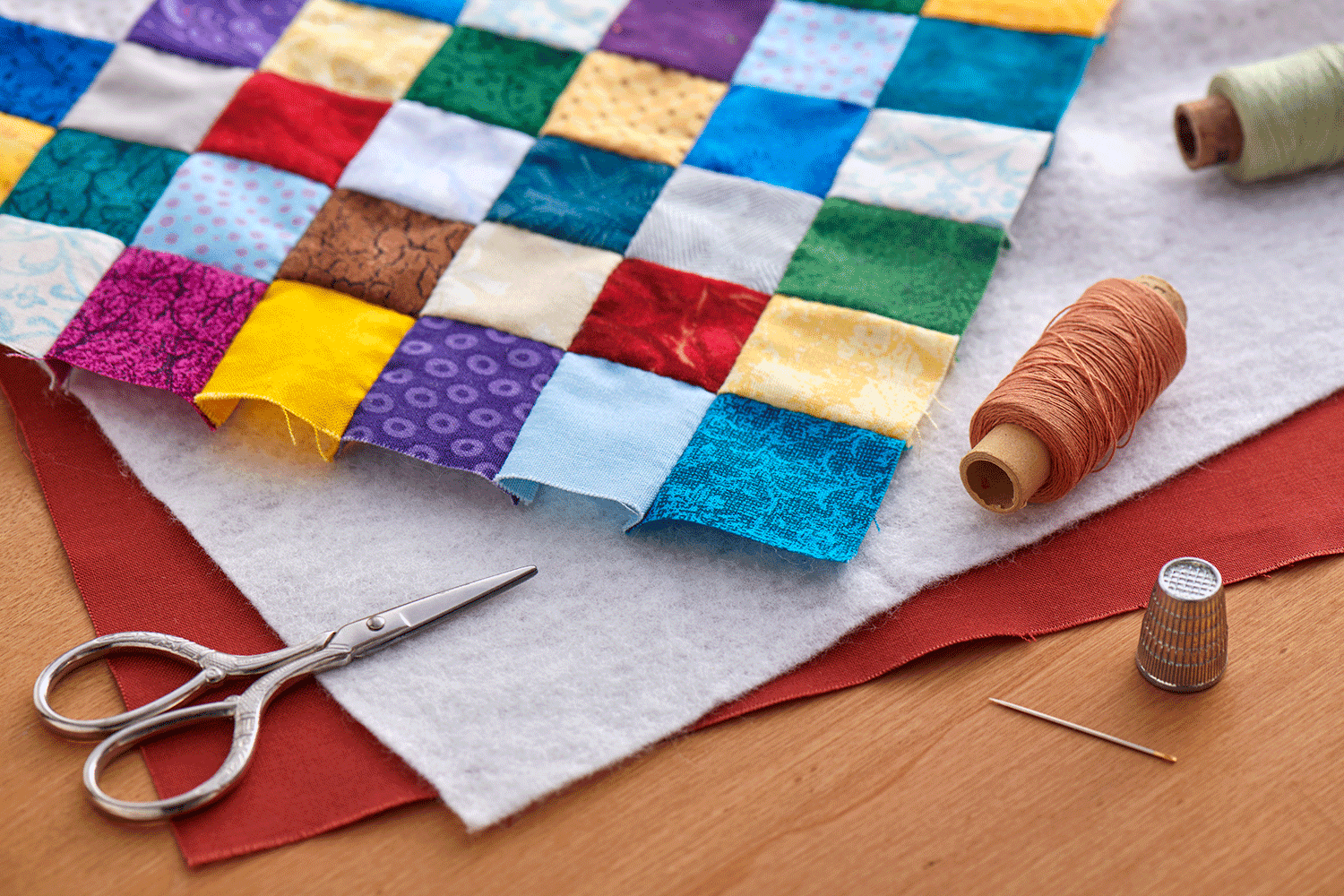
Quilters cotton feels very durable and strong, with the average thread count being 60 threads per square inch. Fabrics with a higher thread count feel softer to the touch. However, a higher thread count comes with a hefty price tag.
A fabric with a higher thread count isn't always the best for a quilt. Average quilters cotton has a 60 to 75 thread count. Luxurious fabrics with a high thread count might not hold up over multiple washes too well.
Avoid washing cotton fabric with a high thread count in hot water and skip the harsh laundry detergent. These are two things that can cause encourage fibers to break down and ruin your fabric's look and feel.
Caring For Quilters Cotton
After selecting quality fabrics for a quilt, you need to know how to best care for your finished project. Before you start, pre-wash and block your quilters cotton before you piece together your quilt.
Pre-washing your quilters cotton before starting a quilt helps reduce the chance of fabric dyes bleeding in the wash. Also, you can make adjustments to your pattern and overall design in case of unforeseen shrinkage or stretching.
If you are satisfied with your materials and positioning, hand quilt or use a sewing machine to complete your work. Try to wash your quilt gently by hand. Squeeze, never twist or wring out your quilt. Lay it flat to dry.
Avoid using hot water and opt for the gentle cycle if you choose to use a machine. Avoid using a dryer unless set on air dry only; never high heat. Harsh detergents and frequent laundering in the washer and dryer can degrade your quilt.
Why Is The Thread Count Important?
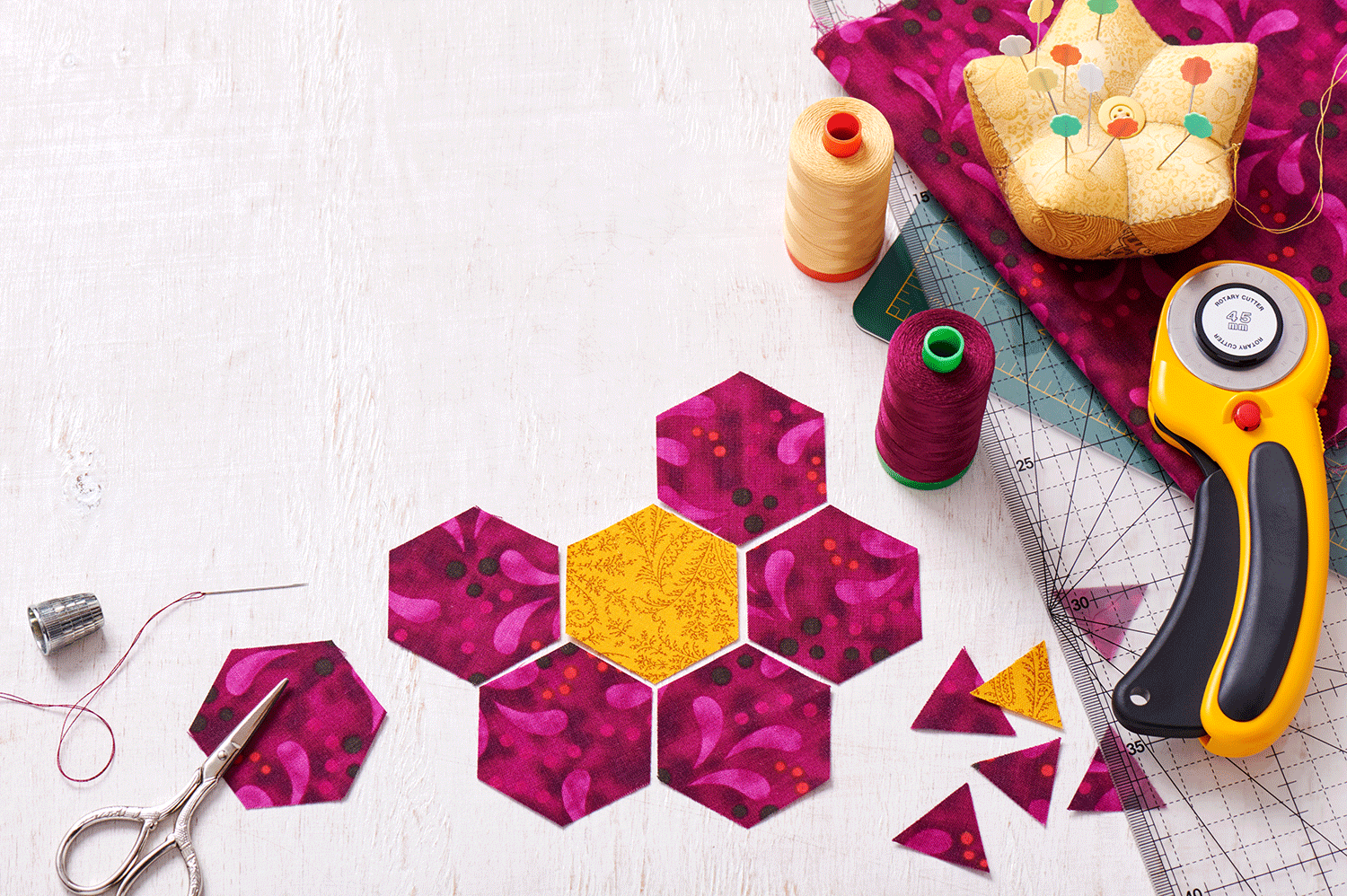
Cotton for quilting is usually made with long staple cotton. Egyptian or Pima cotton is chosen for quilting fabric because these fibers are less likely to develop lint and are much stronger than other types of cotton.
A stronger cotton fabric is less likely to shrink after multiple turns in the washing machine. Quilters fabric takes to sewing, shaping, and placement quite well. Stick to a thread count of around 70 for a carefree quilting project.
Cotton fabric with a thread count under 60 may be more likely to fray, fall apart, or lose shape when quilting. Be careful with higher thread count fabric, which is not only the most expensive but may prove challenging to sew or quilt.
When possible, seek out a quality fabric store to procure materials for your quilt. Larger big box stores may have fantastic deals for their quilters cotton, but often they have a lower thread count and lesser quality.
What Is A Good Thread Count For A Quilt?
If you are adept at quilting, stick to a 100% cotton fabric with a thread count between 70 to 75. Working with fabric with this thread count is ideal for quilting projects. Applying hand sewing or quilting techniques goes more smoothly.
Choose a luxurious, expensive fabric with a high thread count if an experienced quilter. Otherwise, avoid waste and struggling to piece together a beautiful, durable quilt using pricey fabric.
If you are unsure of the thread count, take a closer look at the fabric before you cut and purchase so many yards. Also, consider the weight and type of thread you will use to construct your quilt and how it will interact with your fabric.
How Can You Tell If Fabric Is Quilting Cotton?
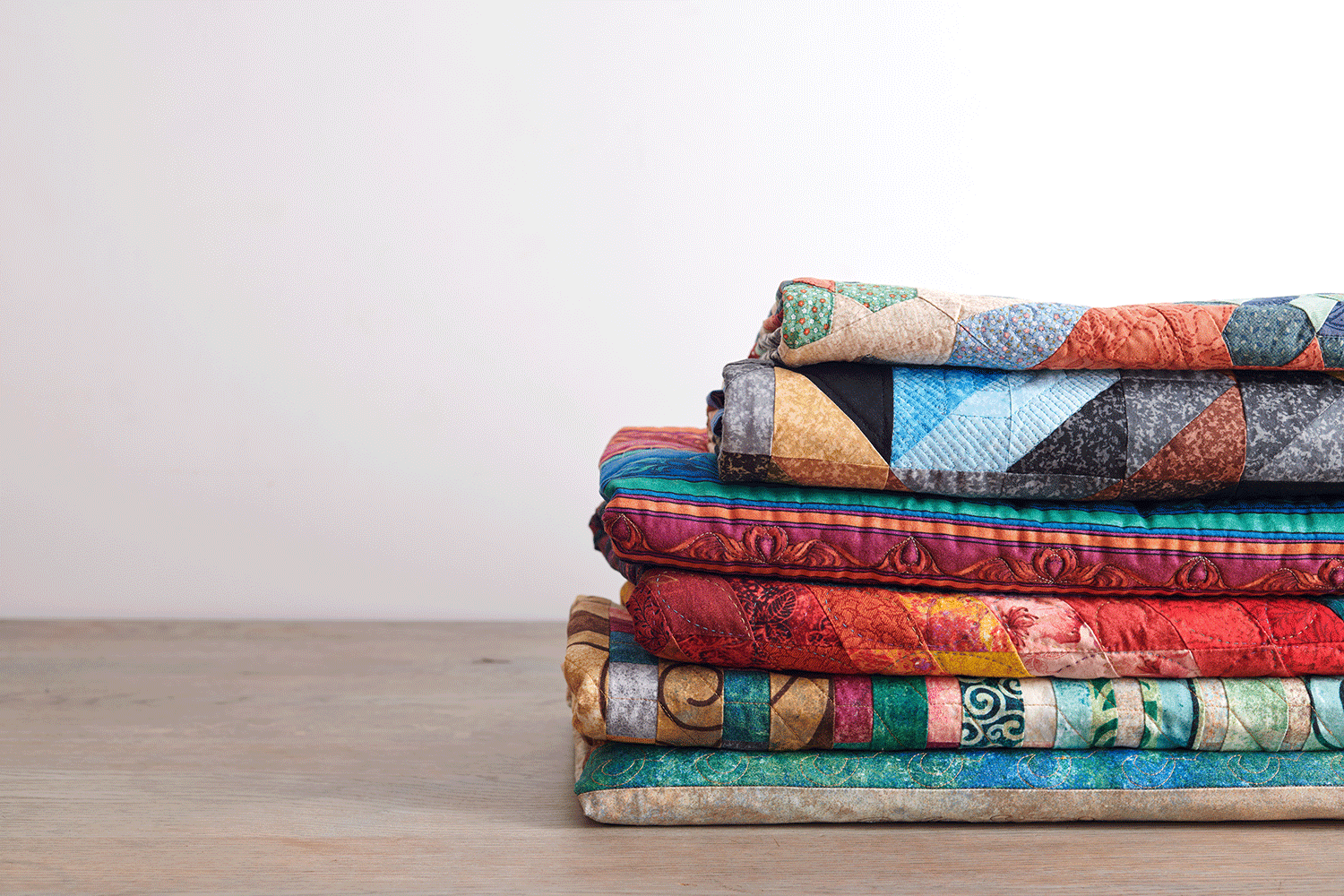
It is wise to learn how to determine if a fabric is quilting cotton or not. First off, most big box fabric or hobby stores sell inexpensive fabric rolls. Most craft lovers are fine working with a quilters cotton with a thread count around 70.
Quilters cotton and apparel cotton are 100% cotton. However, make a crease on quilters cotton with your fingers, and you will likely leave a mark. Quilters cotton is denser and stiffer than cotton with a thread count of 60.
If you fold apparel cotton, it won't hold unless you pin it. Quilters cotton that is high in quality is very tightly woven. Often, cheaper cotton fabric won't list the thread count, and you'll have to guess.
Quality quilters cotton shouldn't be too threadbare, fragile, or overly thick and rough to work with. As quilters cotton gets washed, it becomes softer to the touch but still may hold a fold or crease. Ordinary cotton material is lighter in feel and touch than quilters cotton.
Check out these bundles of colorful quilters cotton on Amazon.
What Is The Difference Between Cotton And Quilters Cotton?
Cotton is a versatile material, valued for being breathable, durable, and hypoallergenic. At first sight, it may be difficult to determine the difference between cotton and quilters cotton. Both types are 100% cotton and have simple weaves.
Additionally, different types of cotton are raised to create fabric meant for apparel, summer season, or quilting specifically. Apparel cotton typically has a fantastic drape, and it is lighter in weight and feel than quilters cotton.
Quilters cotton feels rough and hardy. When you feel quilters cotton, it has a medium density and can handle manipulation without falling apart. If you make a fold or crease, it will likely leave a mark behind.
Average cotton fabric for apparel has a thread count of 150. If you can splurge on a higher-end cotton like Egyptian or Pima, you'll find the thread count is between 160 to 220. Keep in mind, cotton with a higher thread count is more expensive.
What Can I Make With Quilting Cotton?
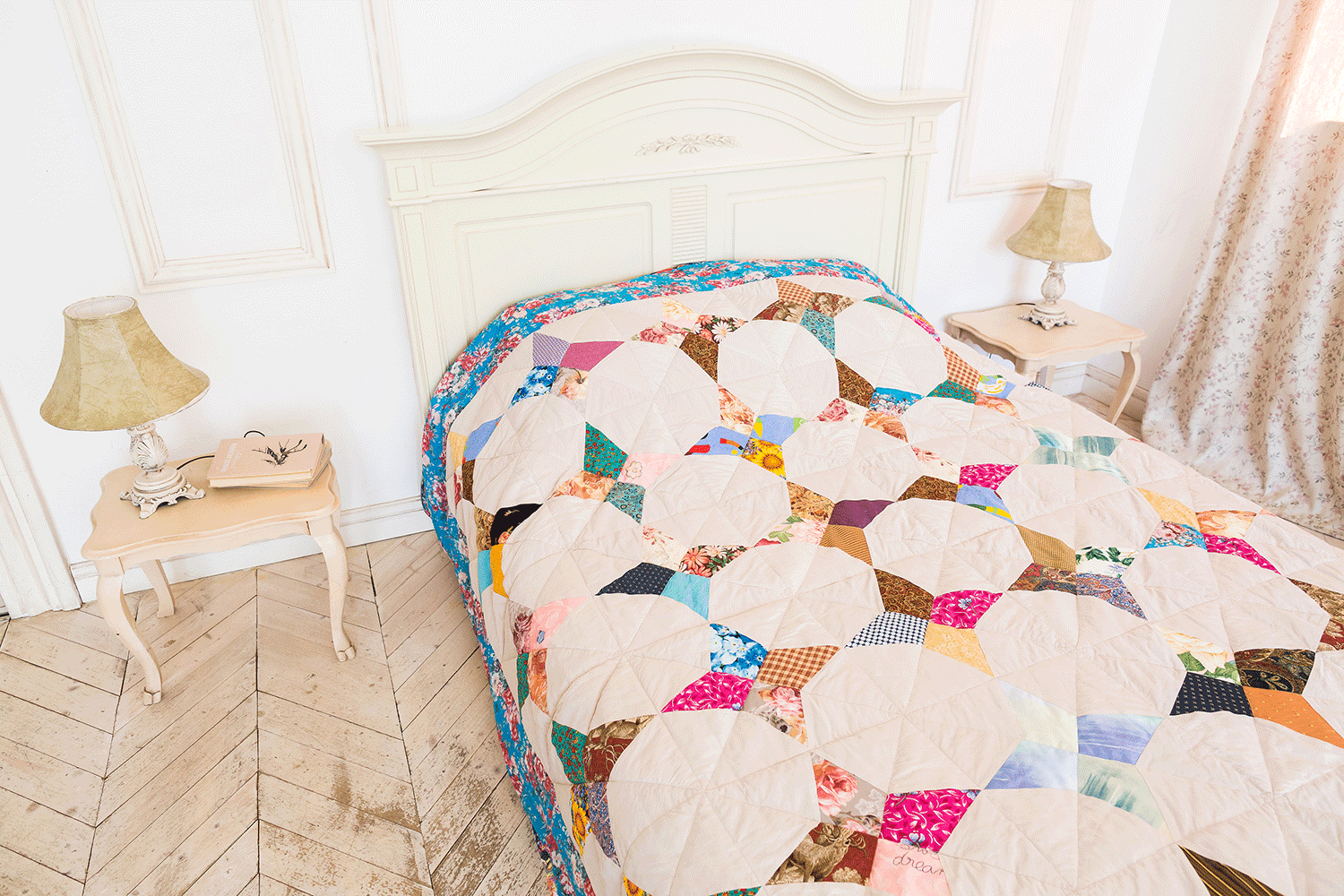
Some people feel that you can only use quilting cotton to create beautiful, intricate blankets, throws, and pillows. However, you don't have to limit quilting cotton. You can explore the versatility of a heavier weight cotton fabric.
Try your hand at using quilting cotton to make a pair of trousers, a dress, or children's clothing. You can use quilting cotton as a liner for specific apparel. In addition to clothing, use quilting cotton to make clever accessories.
Apply quilting techniques and design a tissue box cover, tote bag, makeup case, pencil case, or other creative project using quilting cotton. You'll find that quilting cotton is very user-friendly to work with and softens with every wash.
Before using fabric, give it a pre-wash to look out for leaking dyes, shrinkage, stretching, or poor quality weaves. Because the thread count of quilting fabric lends itself to being more durable, it is versatile for different craft ideas.
Check out this kit for sewing and quilting on Amazon.
In Closing
We hope you feel more confident about quilting cotton and how it differs from ordinary cotton. Quilting cotton is desirable for crafting projects like quilting, making garments, and can even be used as a lining for projects.
Quilters cotton is designed to handle multiple washes over time without losing performance, and it feels more sturdy than other types of cotton. Quilters cotton is one of the best fabrics to work with as a novice to sewing and quilting.
Before you go, don't forget to check out the following related articles.


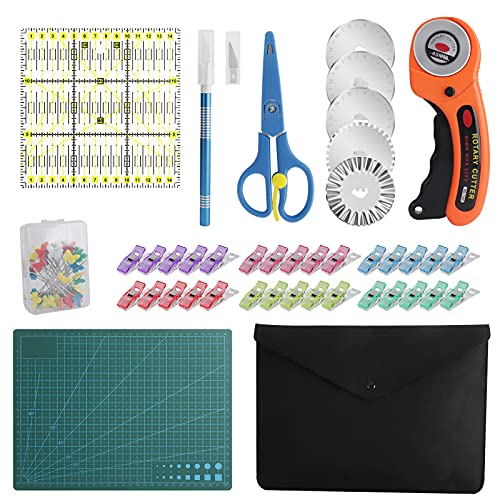
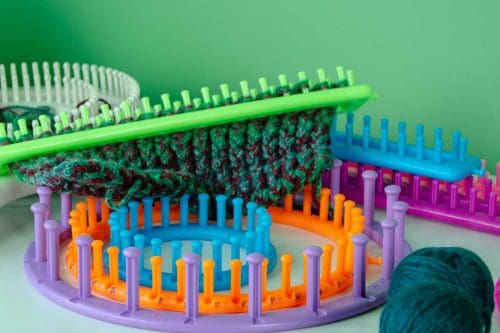
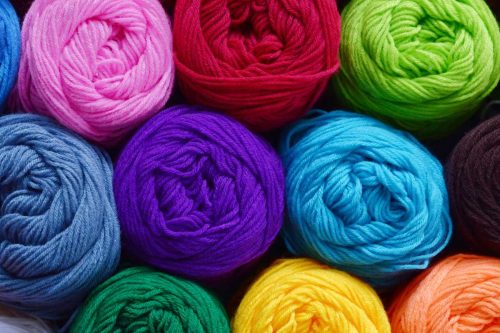
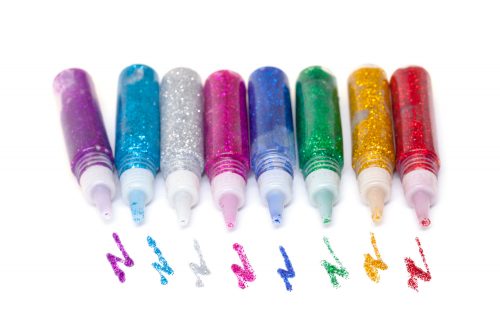
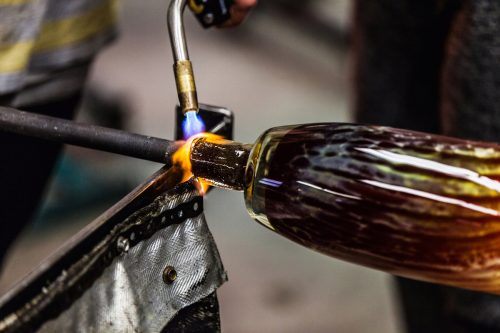
![Read more about the article How To Use Epoxy Resin For Crafts [7 Great Ideas]](https://craftsbliss.com/wp-content/uploads/2021/05/A-breathtaking-and-stunning-looking-wooden-chestnut-table-with-an-epoxy-resin-design-in-the-middle-500x333.jpg)
![Read more about the article What Is The Best Resin To Use For Molds? [5 Suggestions]](https://craftsbliss.com/wp-content/uploads/2020/10/Pouring-white-glitter-resin-into-mold-500x333.jpg)